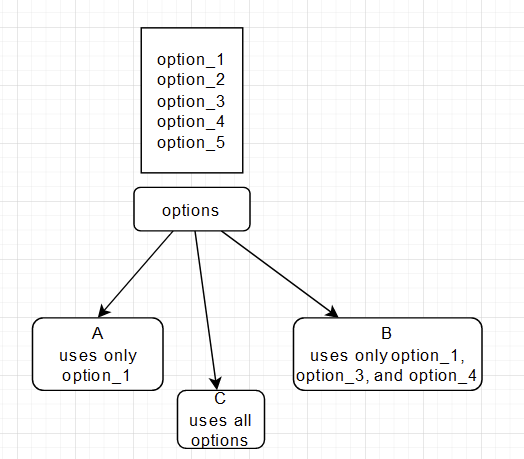I have a C++ component that contains important data that needed from various other components in my program.
The component might contain its own task or not. But in either case it will also hold the data in structs or classes.
The other components that will include the component in question might not need all the data from it.
For example:
We have a component options that contain contain some options/configuration for other components.

Some options might not needed from one component.
The question is whether the module options should be a class and make it public with extern keyword in the header file or just use plain free functions (getters)?
If options is an object. It will be only one object. There's no need for a second object to be created. So it's gonna be either a singleton or just a public object in the cpp file passed global with extern keyword in the header.
Editing my question to clarify a couple of things regarding the two possible solutions.
A class:
class options
{
int getOption1();
int getOption2();
char getOption3();
float getOption4();
char * getOption5();
}
Free functions:
namespace options
{
int getOption1();
int getOption2();
char getOption3();
float getOption4();
char * getOption5();
}
